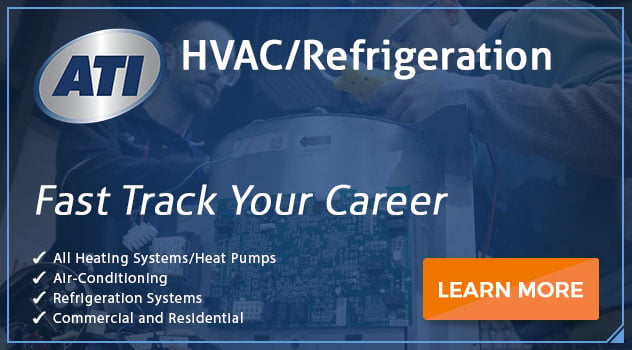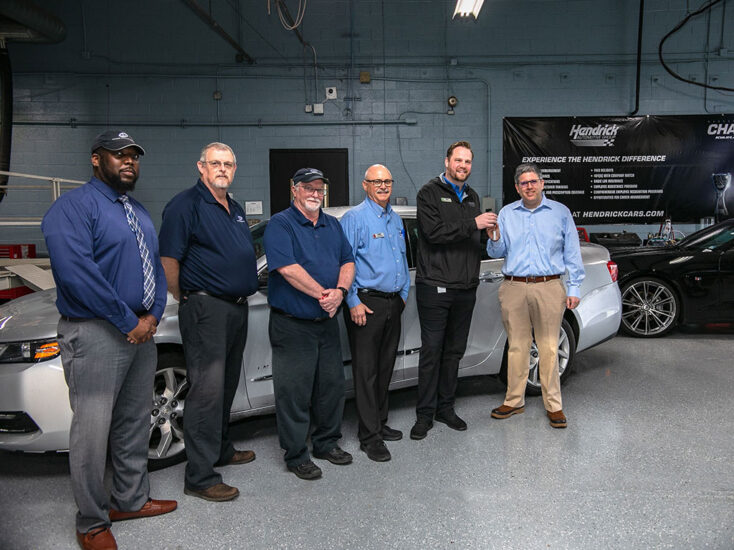Is HVAC in Demand in the State of Virginia?

If you were selling lemonade on a hot Virginia summer’s day, you would be thrilled to get, say, 10 percent more customers than you had the previous day. What if you got 12 percent more? What if demand for your lemonade was so great, you were getting 15 percent more customers? That is the outlook for HVAC technicians in Virginia; demand for well-educated, highly trained HVAC technicians is expected to grow 15 percent from 2016 to 2026, according to the Bureau of Labor Statistics (BLS). And that is not the only good news about this challenging, interesting career.
Virginia is Hot!
We all know Virginia gets hot in the summer, but employment prospects for trained HVAC installers and repair workers are hot, too. Virginia’s hot, humid weather creates a strong demand for skilled technicians able to plan, install, diagnose, and repair systems like these:
- Heating
- Ventilation
- Air conditioning
- Air filtration
- Commercial chilling and freezing
We know Virginia is hot for HVAC workers because the BLS keeps very accurate data in very specific ways. For example, wages are always a major concern, because sometimes, high demand does not immediately lead to higher wages.
Fortunately for HVAC technicians with solid educations in the field, wages in Virginia are strong, says the BLS:
- Hourly mean wage, May 2017 — $23.81, or $16.56 per hour above the state’s minimum wage
- Annual mean wage, May 2017 — $49,520, which is $4,910 above the state mean of $44,610 for all construction trades
- Number of employed HVAC technicians in the Commonwealth — 11,690
With hourly wages more than three times the state minimum wage, and with a strong cadre of colleagues plying their trade, the Virginian HVAC technician is in good company in a good state.
Better Education Means Better Pay
The BLS also tracks the top performers in occupational categories. Among the top 10 percent of HVAC workers in Virginia, the annual mean wage is far above the $49,520 quoted previously:
- 90th percentile annual mean wage — $73,060; these HVAC contractors and technicians may work a little harder, but they also have specialized skills in areas like cryostorage, refrigeration for healthcare applications, and commercial cooling
Once an HVAC worker lands an entry-level job, the climb up the pay ladder could be as fast, based on the additional certifications you earn. Certify in Section 608 EPA and R410A Refrigerant and Handling; earn your NATE certification. Strive for your HVAC Excellence certification. Each new skill can mean better pay.
How Many is Enough?
With a workforce of over 11,000, HVAC may seem like a “full” occupation; how could the state have any room for more? To figure this out, you need only look at the state’s “location quotient,” which is the ratio of the area concentration of occupational employment to the national average concentration.
As the BLS says, “a location quotient greater than one indicates the occupation has a higher share of employment than average.” Virginia’s location quotient is 1.43, meaning the state enjoys a higher concentration of these workers than the national average.
Given Virginia’s often-muggy weather, this is not surprising, but is reassuring: the state can use more HVAC technicians, and you could be one of them.
Learning Curve
The skills needed to become a highly respected, well-paid HVAC technician cannot be learned on the job — one basic mistake could ruin an installation. With a challenging learning curve and a lot of advanced equipment, the HVAC industry needs smart, highly trained technicians with classroom as well as practical experience.
To get started on a successful, financially rewarding career in HVAC in Virginia, get real skills, learn proper work methods, and learn the theory behind heating, ventilation, air filtration, and cooling.
One excellent way to become educated in HVAC is to earn your Associate in Occupational Science (A.O.S.) in Heating, Ventilation, and Air Conditioning (HVAC) at Advanced Technology Institute (ATI). In as little as 21 months, you can attend classes, practice in the shop, and be ready to take an entry-level HVAC position right here in Virginia. Contact ATI today to learn more about your future in HVAC.
Industry Knowledge
Welcome to the Advanced Technology Institute's Blog, your resource for industry insights and discussions on technologies shaping the future of automotive, heavy vehicle, hvac, welding, and other related career paths.
Explore how ATI's curriculum and hands-on learning opportunities can propel your career in the tech-driven world.






